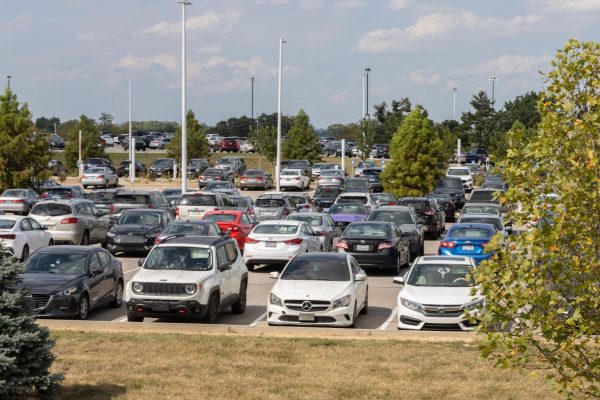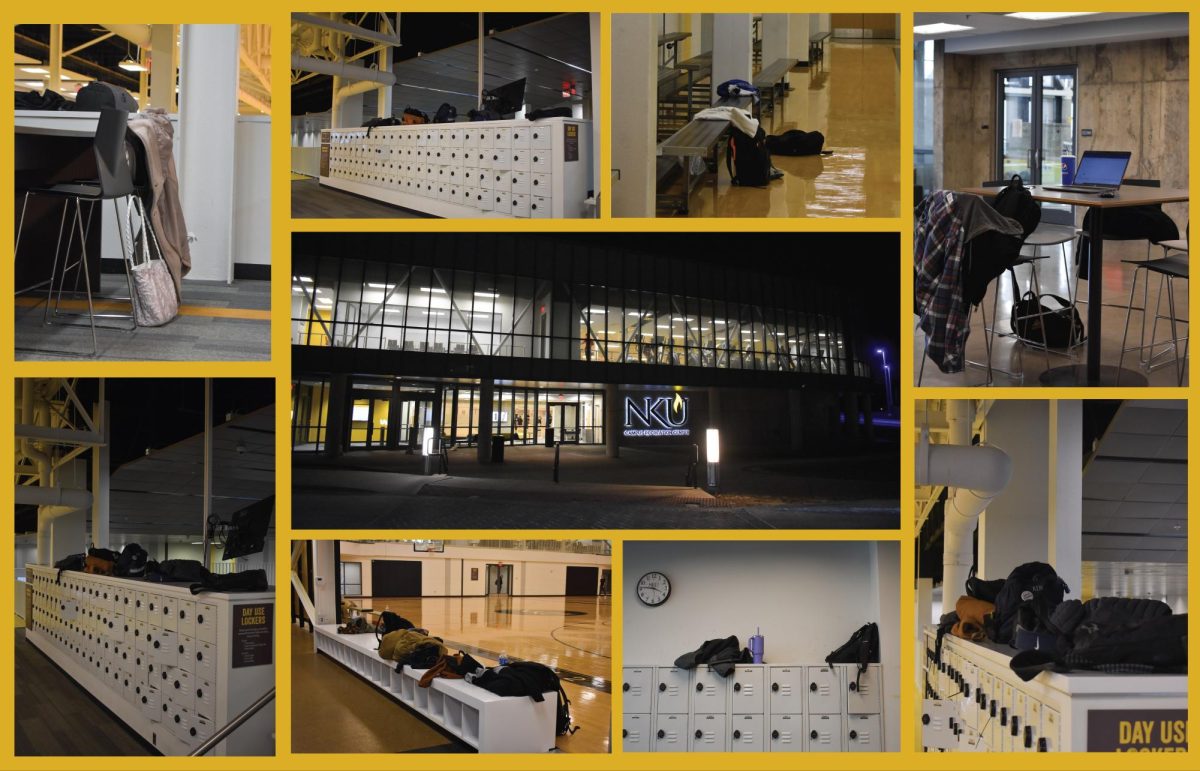NKU is a relatively safe university, some might say. According to the 2022 annual security and fire safety reports, “While no location is devoid of crime, the university’s main campus in the city of Highland Heights holds a 23rd-place ranking as the safest college campus in America, according to Rent College Pads”. NKU has also been named one of America’s Top Colleges by Forbes.”
NKU is required to post public records of daily crime and fire logs. In the past 120 days, 8 thefts occurred on campus, four of which were from unlocked vehicles.
“Our biggest crime—by number, by its volume—is theft,” said Chief of Police John Gaffin. The two most notable places where theft occurs are parking garages and the Campus Recreation Center. “It’s [crime] where the people are, and with that in particular, it’s where we are distracted,” said Gaffin.
Gaffin gave an example of a student running late for class or an exam, who is reviewing the material in their head. They have so much on their minds that they forget about locking the car door. “We don’t see a lot of windows broken. If something’s stolen in a car, it’s generally an unlocked car,” said Gaffin.

Jill Wood, director of the Campus Recreation Center said, “If you went to Kings Island, you probably wouldn’t leave your stuff just hanging out right there.” She said that people feeling comfortable at the Rec Center is very important, but almost 1,200 people enter the Rec Center every day, so using the lockers is the safer option. Wood said that if a visitor leaves their stuff unattended, nine times out of 10 it will still be there when you get back, but she advised against taking the chance.
Gaffin and Wood both mention that a high percentage of things go missing because the Rec visitor leaves it unattended. However, Rec Center employee Sulav Thapa—an NKU student majoring in sports business and event management—said that most of the time the items are taken by a friend or someone they know, who took it with them when changing locations. Wood reinforced that idea when she said, “A lot of times it’s lost, sometimes it’s stolen.”
Thapa shed light on the reasoning behind the Rec Center’s relatively new rule, where minors are not allowed to enter without adult supervision. He said that, at some point, theft at the Rec Center was mostly caused by minors. They would steal wallets, headphones, AirPods and even basketballs.
Gaffin said that since there are a lot of cameras—everywhere except the locker rooms, said Wood—and everyone has to sign in to get into the Rec Center, most times it’s pretty easy to identify the offender. Other times it might not be as easy, like if they got in without signing in or if the cameras didn’t catch their face. That is when other strategies are used.
Gaffin explained one of the strategies the police department uses when they notice an uptick in theft. They send in an officer in plain clothes to keep an eye out since usually, it’s one person who is stealing. “Usually when we get offenders of theft, it’s not five people each committing one theft, it’s one person committing five thefts,” Gaffin said. This is why he stressed the importance of finding the offender from the start to avoid the following thefts.
Wood explained the measures that Rec Center employees take to ensure the safety of people coming into the facility. The employees do their best to make sure that everyone signs in so that offenders can easily be identified in case of any crime. They also have staff members walking around and making sure everyone is doing good. She said that it is sometimes harder for the staff to know if the phone a person is picking up is theirs or not, so she recommends using the free lockers. As Wood said, “You do have to realize there’s a lot of people who come in here, so it just takes one person coming in to steal something.”
Gaffin dove into the differences between what used to be items at high risk for theft a couple of years ago versus now. Books used to be something that got stolen a lot; however, now phones, laptops and tablets are the things getting stolen the most. Gaffin gave a comparison that one might not usually think about: normally phones cost around $1,000 each. If we had a stack of $1,000 in our hands, we wouldn’t just leave it on a desk and expect it to be there when we get back.
However, that is essentially what we do, Gaffin said. We leave our phones or computers on a desk at the Rec Center, for example, and expect it to still be there after our workout, the police chief said. He said this is something we wouldn’t do in Walmart, a grocery store or a restaurant, but because we feel comfortable at NKU, we tend to do things we normally wouldn’t do anywhere else. This creates the opportunity for someone to take a person’s valuables.
Gaffin emphasized the idea that most crime at NKU is crime of opportunity, where people create the opportunity for a crime to happen by leaving their car unlocked or leaving their belongings unattended.

The following are Chief Gaffin’s safety tips for the upcoming winter months and general safety.
Safety Tips for Winter:
- Clean the snow off your car. Leaving snow on the car creates a safety hazard when the snow flies off the car.
- Don’t leave it running unattended. It might be the easiest, most convenient way, but it creates an opportunity for somebody to come and take the car.
General Safety Tips:
- Follow a stable, lighted path when walking at night.
- Always call the police. Gaffin said that calling in anything that seems out of place is always a good thing, whether it turns out to be a crime or not. And it’s a win-win situation: you either made sure everything was okay or helped catch a criminal.
- Talk to somebody on the phone while you’re walking. However, people need to be careful since that can be a double-edged sword. They need to make sure that they’re still aware of their surroundings even if they’re on the phone.
- Make sure your friends or family know when to expect you back.
- Avoid walking with headphones in and looking at your phone completely unaware of your surroundings. A suggestion he gave is to put one headphone on, keeping the other out to still be aware of your surroundings.
- Staying aware of one’s surroundings is important for personal as well as pedestrian safety. Gaffin said, “If I’m in the crosswalk and the cars supposed to stop for me and they don’t, it doesn’t do me any good that they were supposed to stop.”


